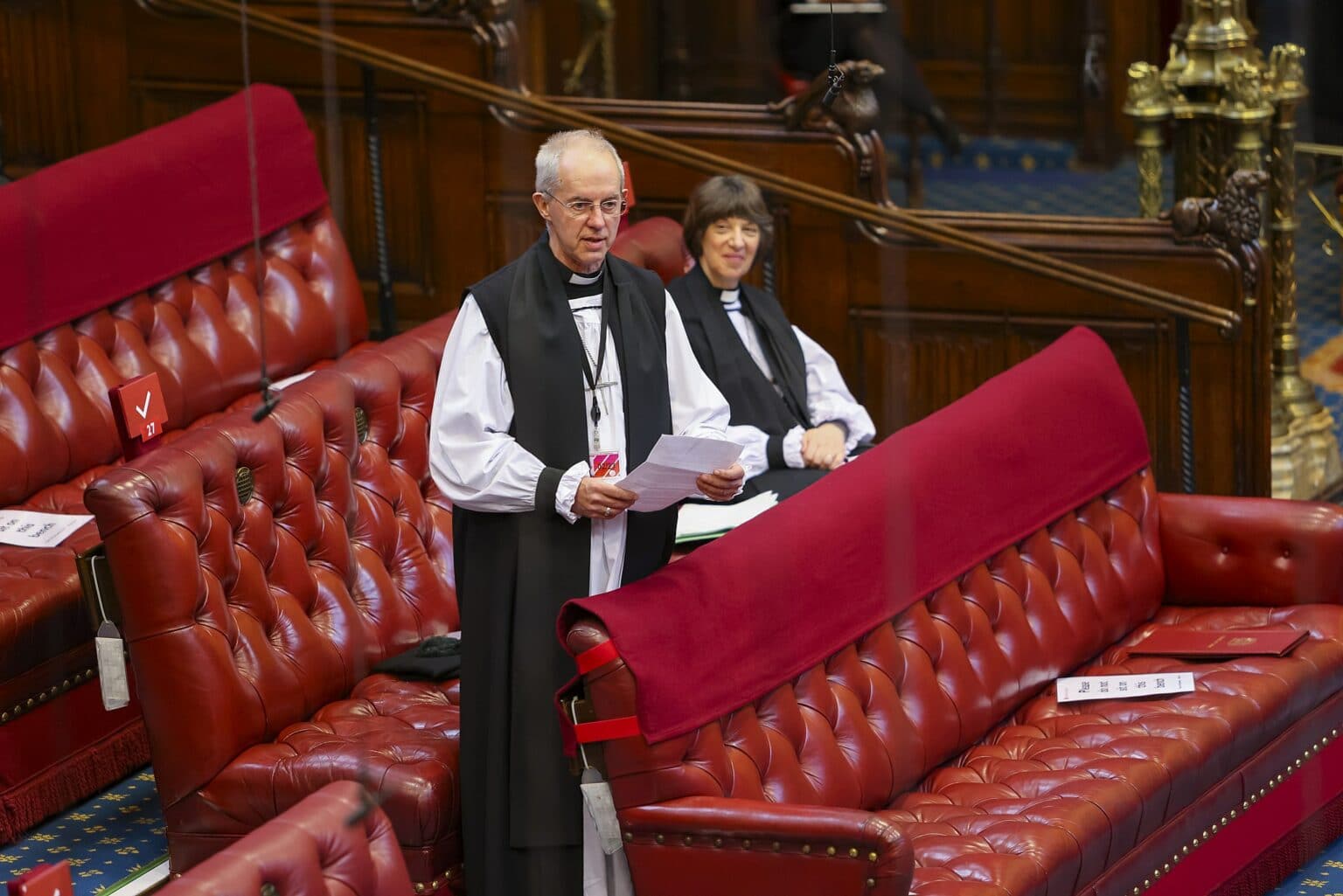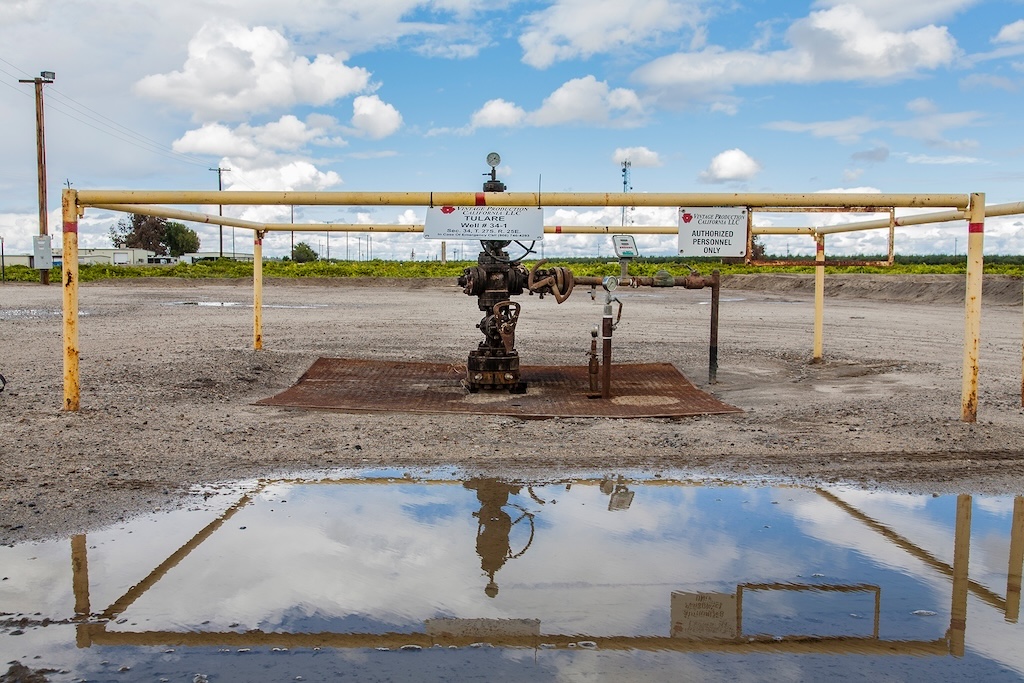Senior figures in charge of the Church of England’s investments have close current or past ties to high-carbon companies including Shell, Drax and BP, DeSmog can report.
The revelations come as the Church faces renewed pressure to fully divest from fossil fuels after its biannual meeting earlier this month, where climate campaigners expressed frustration at the Church’s ongoing stakes in oil and gas.
In 2018, the Church of England’s (C of E) General Synod voted to divest from all oil and gas companies that are not in line with the Paris Agreement by 2023. Yet three years later, the Church continues to hold shares in Shell, TotalEnergies, and ExxonMobil – all of which are planning significant fossil fuel expansion.
The expansion conflicts with guidance from heads of the United Nations and the International Energy Agency, who have said there should be no new oil and gas projects if global temperatures are to be kept within the Paris Agreement’s 1.5C target.
Exxon, which plans to spend £17.7 billion ($24 billion) on new drilling this year, was put on the Church’s list of “restricted” companies last month. But ahead of last week’s General Synod, the Church said it was continuing its “engagement” with the US oil giant since the release of Exxon’s new net zero plan.
Members of the Young Christian Climate Network (YCCN) described the Church Commissioners’ ongoing stake in Exxon as a “betrayal” in a recent letter to the fund – one of the C of E’s National Investing Bodies (NIBs).
The YCCN reports that the Archbishop of Canterbury told them in a meeting in October that the Church’s NIBs would “disinvest immediately” from companies that do not meet its tests. But, its letter adds, this has “not been the case with ExxonMobil.”
Church NIBs set up the Transition Pathway Initiative (TPI) in 2017 to test companies’ climate progress. The TPI was criticised as “misleading” in November by the NGO Reclaim Finance, after it claimed TotalEnergies was on a path to align with 1.5C in 2050, despite the company’s plans to increase Arctic oil and gas production by 28 percent by 2030.
Fossil Fuel Ties
Campaigners believe the C of E’s delays in divesting may be related to the historic ties between fossil fuel companies and individuals on the Church’s many investment bodies.
Clive Mather, who was elected chair of the CoE’s pensions board in 2019, is a former CEO of Shell Canada. He oversaw the company’s expansion into highly polluting oil sands before his retirement in 2007. A General Synod paper has portrayed him in green terms, saying “he took a high profile on environmental issues, presenting the business case to promote sustainable development”.
Others currently hold – or used to hold – positions in polluting sectors. Richard Hubbard, chair of the board’s pensions committee, worked for BP for nearly 30 years, retiring from his role as director of BP’s European cross-border pension plan in 2020.
David Nussbaum, a member of the Ethical Investment Advisory Group (EIAG), which provides guidance to all of the Church’s investing bodies, is a director of Drax. Its biomass plant in North Yorkshire is marketed as carbon neutral despite being the UK’s biggest single source of CO2 emissions.
The Archbishop of Canterbury, Justin Welby, who chairs the Church Commissioners, himself worked in the oil industry for more than a decade in the 1970s and 80s.
Officials also have ties to banks that finance fossil fuels. Dami Lalude, another member of the EIAG, previously worked at Goldman Sachs, spending time in its Natural Resources Group, which covers oil and gas. Goldman has financed the fossil fuel industry to the tune of more than $100 billion since the Paris Agreement, and was still financing coal-fired power as of 2020, according to BankTrack.
Engage or Divest
The Church defended its position in written responses to its internal critics ahead of Synod last week. When quizzed by Church members, First Church Estates Commissioner Alan Smith, who holds the highest rank in the investment body, said: “We want to achieve a net-zero world, not a net-zero portfolio for the Church Commissioners. As Christians we should engage with those who are not-yet-perfect.”
Smith – a former global head of risk strategy at HSBC, which has financed more than £81 billion ($110 billion) in fossil fuels since the Paris Agreement – said the Church had persuaded Exxon’s investors to add three members with “strong climate leadership capabilities” to their board, and felt it was “responsible to still engage rather than divest at this time”.
Chris Manktelow from YCCN said: “We are deeply concerned that they deem ExxonMobil’s net zero policies suitable.” He pointed out that the company’s ambitions for carbon neutral operational emissions do not count “scope 3 emissions”. This means they exclude emissions that result from the burning of the fossil fuels they produce, which are estimated to account for 80 percent of Exxon’s total emissions.
The Church also led investor engagement with Shell last year, through its role in the Climate Action 100+ initiative, a group of investors committed to pressuring companies into taking stronger action.
Clive Mather has defended the Church’s ongoing investment in his former employer in written answers to Church members, saying that Shell had passed the “interim hurdles” set by the Church’s National Investing Bodies, but had “not yet aligned to our 2023 requirements”, so engagement would continue.
Revd Dr Darrell Hannah, chair of Christian climate change charity Operation Noah, said: “Why did the Pensions Board support Shell’s energy transition plan, which includes a 20 percent gas production increase in the next few years?
“Christians with strong financial ties to high-polluting companies are clearly compromised in taking the urgent action now needed against those companies. We urge Clive Mather and others to reconsider their position.”
‘In the Conversion Business’
The effectiveness of investor engagement more widely is being questioned. A report earlier this month from non-profit Majority Action found that shareholder activism was being “systematically undermined” by big investors’ proxy voting, with a majority of Climate Action 100+ investors approving every director at 29 US companies that missed industry net zero targets.
Manktelow said: “Engagement is not working. The Church of England needs to fully divest from these companies to care for God’s creation and show moral leadership.”
The Church declined to comment on the ties between their finance chiefs and fossil fuel companies. A Church of England spokesperson said: “The Church of England’s national investing bodies have taken the view that they have more influence on high carbon industries by being in the room rather than by divesting. By engaging with high carbon emitting companies, we can address the climate crisis and bring about real world change.”
Bess Joffe, head of responsible investment at the Church Commissioners for England, said: “Our decision to maintain our Exxon holding is part of our ongoing engagement with the company, which saw a successful campaign to replace 25 percent of their board.
“We will hold Exxon shares for now to keep our seat at the table. This will give the new directors time to work with their board colleagues to bring about change and address the urgent climate crisis.”
She said the Church would divest if Exxon fails to “demonstrate sufficient progress” and was “particularly interested” in how the company plans to address its scope 3 emissions.
Joffe added: “As Archbishop Justin has said about our engagement with fossil fuel companies, the Church is in the conversion business: we believe that no one is free from sin – including ourselves – but that both people and institutions have the capacity to change and do better.”
Subscribe to our newsletter
Stay up to date with DeSmog news and alerts






